Latest Posts
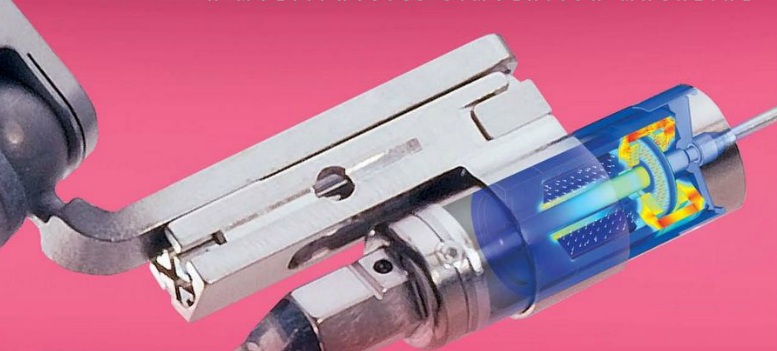
Simulation-Based Design of New Implantable Hearing Aids
Growing older is an inevitable part of life, and with it, our body slowly begins to show that. I recently started wearing eye glasses because my eyesight is weakening. It’s a little unnerving, but I am comforted by the ever-improving technology being produced. My hearing is still fully intact, but the same cannot be said for 17% (36 million) of American adults who report some degree of hearing loss. In most cases, regular hearing aids are sufficient in treating hearing […]

First Keynote Video Takes Us to Babel
One of the differences between this year’s COMSOL Conference, and previous years’, is that this year we filmed a lot of it. During the next few weeks we will be publishing some of these videos for those that were there, to enjoy it once again, and for those that weren’t to get a taste of what went on. To kick these all off, I’m proud to present the first keynote video, which takes us to Babel.

Proprietary Code or Off-the-Shelf?
Many engineers and scientists have worked in their chosen application areas for many years. It is not unusual that their first models consisted of a few lines of code that they wrote themselves. Or, the application was so specific that the engineer was forced to write code, as none of the commercial simulation packages available could handle their unique application. Then there’s the COMSOL Multiphysics® software, which enables you to enter your own equations. What’s the best option?
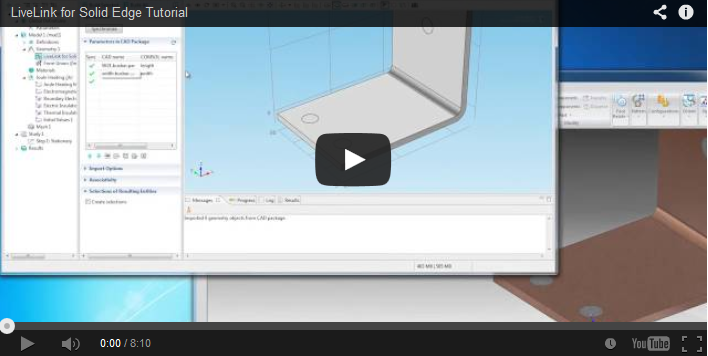
New Product Video Tutorial: LiveLink™ for Solid Edge®
With the latest COMSOL release, Version 4.3a, comes new CAD interoperability. We are delighted to introduce LiveLink™ for Solid Edge® seamless associativity between Siemens’ CAD experience and COMSOL’s multiphysics simulation software. A LiveLink™ for Solid Edge® video tutorial demonstrates this integration, and gives you a leg up in your design modeling. In this video, the three main features to help you design, optimize, and troubleshoot your geometries are demonstrated.
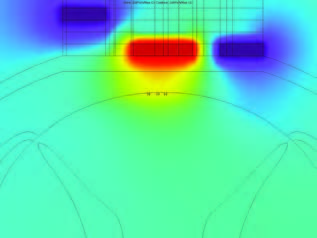
Modeling Scar Effects on Electrical Spinal Cord Stimulation
Spinal cord stimulation (SCS) is a treatment for chronic back pain that has been around for over 40 years. It involves implanting electrodes that apply electric potentials directly to the spine, interfering with the human pain signaling circuitry. The body attempts to send pain signals to the brain, but the electrodes act as a barrier preventing the signals from reaching the brain. Although an overall successful method for treating back pain, researchers have been improving on the design since the […]
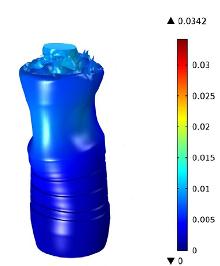
Triple Bottom Line: Innovating Bottled Water
Reducing the amount of plastic used in the production of bottled water would both help companies save on packaging costs and be more sustainable. That seems easy enough, until you consider the fact that during storage and transportation, the bottles are stacked on top of one another. With a lot of bottles comes a lot of mechanical load. How can companies reduce the amount of plastic without compromising the structure of the bottles?

Thank You for Attending the COMSOL Conference Bangalore 2012
On November 2-3 the COMSOL conference made its stop in Bangalore, India. This two-day event hosted eminent keynote speakers, user presentations, minicourses, poster sessions, and finally closed with an awards ceremony. Here’s a re-cap of the highlights of the COMSOL Conference Bangalore 2012:
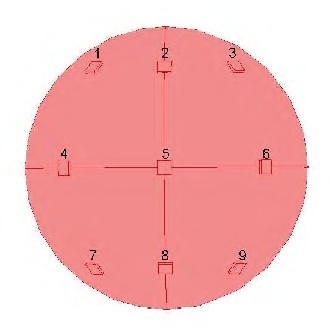
Microwave Imaging for Breast Cancer Detection
Last month was Breast Cancer Awareness Month (BCAM). In many parts of the world walks were coordinated to fundraise for breast cancer research, and here in the U.S. it also meant NFL football players donned pink gear throughout the month. It was only fitting then, that a poster was presented on the topic at our conference in Boston. The research presented there explores a new method for detecting breast tumors.
